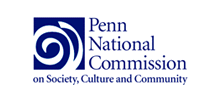
The Commission's findings and continuing research projects have clear implications for those who would seek to encourage real change in the conduct of public discourse:First, the aim of such efforts must be the promotion of productive discourse, not the condemnation of uncivil discourse.Second, such efforts must be broadly conceived if they hope to counteract the large-scale and long-term social, technological, and economic dynamics that have influenced the conduct and content of public discourse.
Third, such efforts must target the key leadership cadres and emerging institutions that have real potential for effective discourse leadership and the creation of inclusive, stable discourse communities across boundaries of difference and isolation.
Fourth, rather than promoting a single technique or format, such efforts must disseminate a wide variety of concrete models and principles for exemplary public discourse that can be used by the growing list of civic organizations and discourse programs devoted to the improvement of public debate and discussion on important public issues.
Fifth, such efforts will be most effective if they build ideas about "best practices" in discourse leadership into the professional and institutional cultures of the target audiences.
Sixth, in tandem with the focus on key institutions and leadership cadres, such efforts should take advantage of the perceptible (e.g., in response to the Impeachment process) public yearning for more productive norms of public behavior and discourse to create a widely dispersed national movement that takes on a life of its own as it permeates the society to promote a more positive discourse culture,
Finally, such a movement will need to create more visible and powerful models of effective discourse principles and practices, if it hopes to influence either the general public or the busy professionals and complex institutions that actually organize and lead public discourse.
These key conclusions and implications have shaped our goals and plans for programmatic activities designed to improve the actual conduct of public discourse in the United States, which will get underway following the final plenary meeting of the Commission in November 1999. If leaders, institutions, universities, and students all come together, we believe we can create a national movement for more productive, engaged public discourse. As happened with community service, such a movement can start in the universities and cultural institutions, yet eventually impact -- and permeate -- the entire society.
© 2000 Trustees of the University of Pennsylvania. The materials available on this website are not to be duplicated or redistributed without the express written permission of the Penn National Commission on Society, Culture and Community.